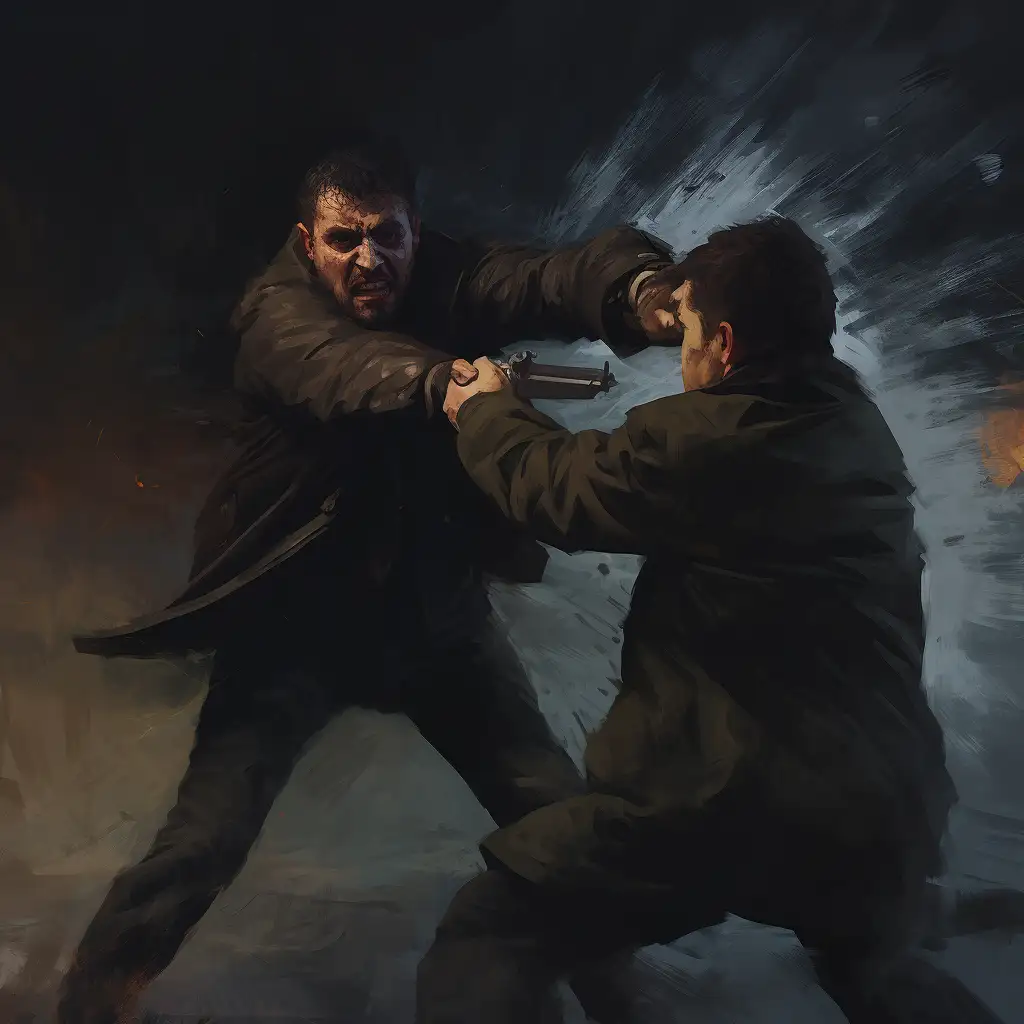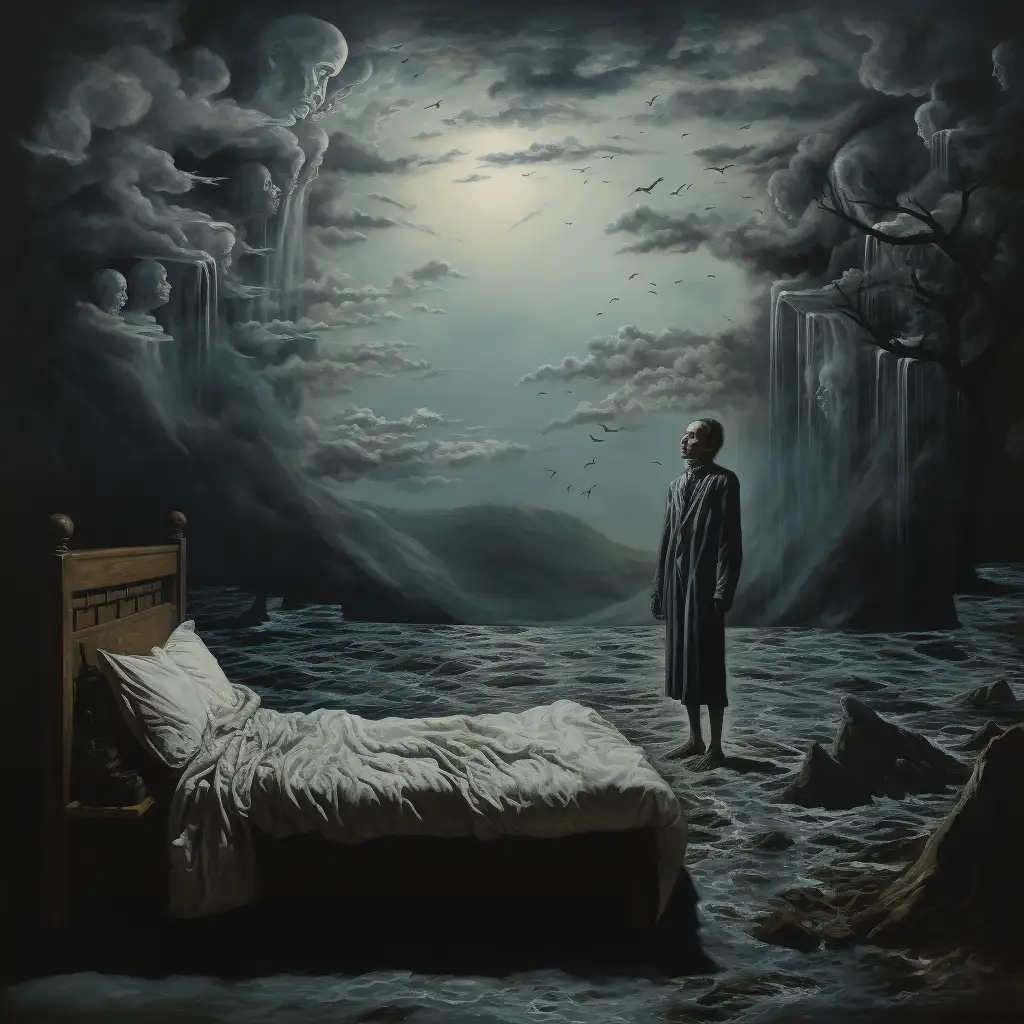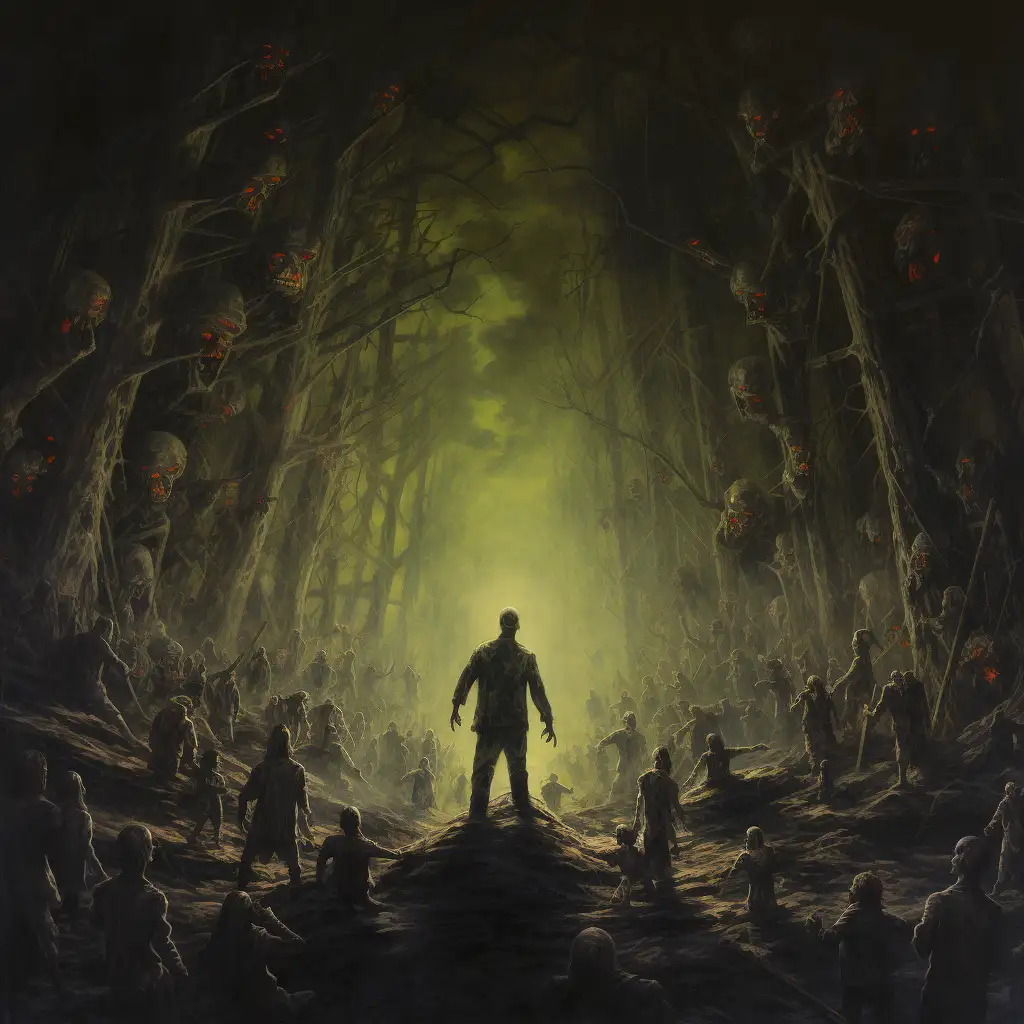Everyone has had a dream about death at some point in their life. Some people may find these dreams unsettling, while others may see them as just another dream. However, when the dream is about one’s own death, it can be particularly distressing. So, what do dreams about your own death mean?
According to dream experts, death dreams are not necessarily a premonition of one’s actual death. Instead, these dreams usually symbolize something deeper and more complex, such as a fear of change, a need for transformation, or a desire for closure.
In this article, we will take a closer look at dreams about one’s own death and explore the various interpretations and insights behind them. We will delve into the psychological, cultural, and symbolic meanings associated with these dreams, and provide guidance on how to cope with any anxieties or fears they may provoke.
Key Takeaways:
- Dreams about one’s own death are common and often symbolic.
- These dreams may reflect deeper fears, desires, or emotions.
- Interpreting the meaning of death dreams requires considering various factors, such as personal experiences and cultural beliefs.
- Coping with death dreams involves finding ways to manage any anxieties or fears they may provoke.
Understanding Dreams: An Overview
Dreams are a natural part of the human experience, occurring during the rapid eye movement (REM) stage of sleep. During this time, the brain is highly active, processing and consolidating memories, emotions, and experiences from the day. Dreams can consist of vivid imagery, sounds, and sensations that may or may not be based in reality.
Dream interpretation is the process of analyzing the content of a dream to uncover its potential meanings and significance. There are many different approaches to dream interpretation, including psychological, spiritual, and cultural perspectives. Some theorists believe that dreams serve as a window into the subconscious mind, revealing hidden fears, desires, and unresolved conflicts.
While the science behind dream interpretation remains controversial, many people find value in exploring their dreams as a means of gaining insight into their inner selves. By understanding the role of dreams in the human experience and the potential meanings behind them, individuals can begin to unravel the mysteries of their own dreams and use them as a tool for self-discovery and growth.
Interpreting Dreams About Death
Interpreting dreams about death can be a challenging process, as the symbolism and meaning behind such dreams can vary greatly depending on the context and personal experiences of the dreamer. However, by analyzing certain factors and patterns within the dream, one can gain valuable insights into the potential significance of dreaming about one’s own death.
One of the most important factors to consider when interpreting death dreams is the context of the dream itself. For example, was the dreamer experiencing physical pain, emotional distress, or a sense of acceptance or peace? The setting and surroundings of the dream, as well as any other characters or objects present, may also provide clues to the meaning behind the dream.
Personal experiences and emotions related to death can also influence the interpretation of death dreams. For example, someone who has recently lost a loved one may be more likely to dream about death as a manifestation of their grief and mourning process. Similarly, someone who has a strong fear of death may experience more frequent and intense death dreams as a manifestation of their anxiety.
It is also important to note the symbolic aspects of death dreams, such as common imagery and themes that often appear. For example, dreams about falling, drowning, or being buried alive may signify feelings of helplessness, while dreams about being chased or hunted may represent a sense of fear or danger. The presence of certain animals or objects, such as snakes or knives, may also have symbolic significance.
Ultimately, the interpretation of death dreams is a complex and highly individual process. By carefully examining the context, personal experiences, and symbolism within the dream, one can gain a greater understanding of the potential significance and implications of dreaming about one’s own death.
Symbolic Meanings of Death Dreams
Dreams about death are often rich with symbolism and imagery that can provide insight into our subconscious thoughts and emotions. Understanding these symbols can help us interpret the deeper meanings behind our dreams.
| Symbol | Meaning |
|---|---|
| Death | Transformation, change, or the end of something |
| Skeletons or Bones | The bare essentials, what remains when everything else is stripped away |
| Funerals or Mourning | Letting go, releasing the past, or moving on |
| Graveyards | The past or history, or a reminder of our own mortality |
| Rebirth | A new beginning or a fresh start |
It’s important to note that the meanings behind these symbols can vary based on personal experiences and cultural beliefs. For example, a graveyard may represent loss or sadness for some, while for others it may symbolize tradition or reverence.
Moreover, dreaming about one’s own death can be a powerful symbol of transformation. It may reflect a desire to let go of the past and start anew, or it may represent a significant change or transition in one’s life.
“Death is not the end, it is simply a transition from one state of being to another.”
It’s important to remember that death dreams are not necessarily a negative omen or a premonition of death. Instead, they may offer a unique opportunity to reflect on our lives, gain insight into our subconscious, and make positive changes for the future.
Psychological Perspectives on Death Dreams
Psychologists have long been fascinated by the meanings behind dreams, particularly those involving death. Many believe that these dreams may reflect our deep-seated fears, anxieties, or unresolved issues related to mortality.
Sigmund Freud, one of the founding fathers of psychoanalysis, argued that dreams are a way of expressing unconscious desires, fears, and conflicts. He believed that death dreams may represent a fear of castration or loss of power, as well as a longing for rebirth and renewal.
Carl Jung, another influential psychologist, saw dreams as a window into the collective unconscious, a shared repository of archetypes and symbols that transcends individual experience. He saw death dreams as a way of confronting the shadow, the dark side of our psyche that we may try to repress or deny.
Other psychologists, such as Ernest Becker and Sheldon Solomon, have explored the existential dimensions of death dreams, arguing that they reflect our awareness of our own mortality and the fear of non-existence. They suggest that death dreams may serve as a coping mechanism, allowing us to process the inevitability of death and find meaning in life.
Overall, the psychological interpretation of death dreams offers a rich and complex framework for understanding the hidden meanings behind these powerful and often unsettling dreams.
Cultural and Spiritual Perspectives
Dreams about one’s own death have long held deep significance in many cultures and belief systems. In some cultures, such dreams are seen as omens or warnings, while in others, they are interpreted as a symbol of transformation and renewal.
Native American Culture
In Native American culture, dreams about death are often seen as a sign of spiritual transformation. The dreamer may be undergoing a significant change in their life, letting go of old beliefs or habits and embracing a new way of being. Death dreams may also symbolize the cycle of life, death, and rebirth, and the interconnectedness of all things in the natural world.
Eastern Spirituality
In many Eastern spiritual traditions, death is viewed as a natural part of the cycle of life, and dreams about death are interpreted as a symbol of spiritual growth and awakening. The dreamer may be on the cusp of a new level of consciousness or moving closer to enlightenment. Death dreams may also indicate a need to let go of attachments and desires that are holding the dreamer back from their spiritual path.
Christianity
In Christianity, dreams about one’s own death can have multiple meanings. They may be a reflection of fear and anxiety surrounding death and the afterlife, or they may be interpreted as a reminder of the importance of living a virtuous life and preparing for the eventual transition to the afterlife. For some Christians, death dreams may also be interpreted as a message from God, urging the dreamer to seek spiritual guidance or deepen their faith.
Regardless of one’s cultural or spiritual background, dreams about one’s own death can be a powerful source of insight and reflection. By exploring the various interpretations and meanings associated with these dreams, individuals can gain a deeper understanding of themselves and their spiritual journey.
Common Themes in Death Dreams
While dreams about one’s own death can vary greatly in content and tone, there are certain themes and motifs that tend to be common among many people. Recognizing these patterns can help shed light on the symbolism and meaning behind these dreams, and give insight into deeper fears or anxieties that may be at play.
Recurring Scenarios
Some of the most common scenarios that appear in death dreams involve accidents, natural disasters, or violent attacks. These dramatic and sudden events often reflect a sense of powerlessness or lack of control in one’s waking life. Other common scenarios involve illness or disease, which can tap into deeper fears of physical vulnerability or mortality.
Emotional States
Feelings of fear, anxiety, or sadness are often associated with dreams about death. These emotional states can be indicative of underlying fears or worries, such as a fear of the unknown or concern about one’s own mortality. In some cases, dreams about death can also evoke feelings of peace or acceptance, particularly when the dreamer is able to let go of attachments or fears.
Symbolic Imagery
Objects or imagery related to death can also appear in dreams, such as coffins, tombstones, or skeletons. These symbols often represent transformation or change, indicating that the dreamer may be going through a significant personal transformation or transition. Other symbols, such as a bright light or a tunnel, can signify a spiritual or mystical experience, suggesting that the dreamer is exploring deeper aspects of their inner self.
By paying attention to these common themes and symbols, individuals can gain a deeper understanding of the underlying message behind their death dreams. While these dreams can be unsettling or even frightening, they can also provide valuable insights into one’s innermost fears, hopes, and desires.
Coping with Death Dreams
Dreams about death can be unsettling and even distressing. It is important to find ways to cope with these dreams, particularly if they are affecting your daily life. Here are some tips for managing death dreams:
- Don’t ignore the dream: It can be tempting to push the dream aside and try to forget about it, but this may only make the anxiety worse. Instead, take some time to reflect on the dream and try to understand its potential significance.
- Talk to someone: Sharing your dream with a trusted friend or loved one can help alleviate some of the anxiety. They may offer a different perspective or provide comfort and support.
- Practice relaxation techniques: Techniques such as deep breathing, meditation, or yoga can help you manage stress and reduce anxiety related to the dream.
- Write it down: Keeping a dream journal can help you track recurring themes or symbols in your dreams. It can also provide a safe space to express any emotions or fears related to the dream.
- Seek professional help: If the dream is causing significant distress or impacting your daily life, consider consulting a therapist or dream analyst. They can provide personalized guidance and support in understanding and addressing these dreams.
Remember that dreams are a natural part of the subconscious mind and can offer insights into our fears, hopes, and desires. By acknowledging and understanding the significance of dreams about death, you can find ways to cope with any anxiety or stress related to the dream and find a deeper understanding of yourself.
Seeking Professional Help
While exploring the meaning behind dreams about death can be a helpful exercise, it’s important to seek professional help if these dreams are causing significant distress or impacting daily life. Consulting a therapist or dream analyst can provide personalized guidance and support. They can help identify any underlying psychological issues related to mortality, trauma, or anxiety, and provide strategies for coping with these issues.
Exploring Other Dream Symbols
While dreams about one’s own death can be particularly unsettling, they are just one type of dream that can reveal deeper meanings about our subconscious. There are countless other dream symbols that can provide insights into our emotions, desires, and fears.
One common dream symbol is water, which can represent our emotional state. Calm waters may suggest a sense of serenity or contentment, while choppy waters may reflect turmoil or instability. Another common symbol is falling, which can represent a loss of control or fear of failure.
Animals are also frequent dream symbols, with each animal carrying its own unique meaning. For instance, a wolf may represent fear or aggression, while a butterfly may symbolize transformation or growth.
To better understand the various symbols and interpretations of dreams, individuals may consider keeping a dream journal and researching common symbols online or in dream interpretation books. However, it is important to remember that the meanings behind dreams are highly personal and can vary depending on an individual’s experiences and emotions.
Reflecting on Personal Experiences
While there are common themes and symbols that often appear in dreams about death, it is important to remember that everyone’s dream experiences are unique and personal. Therefore, reflecting on your own personal experiences and emotions surrounding death dreams can provide valuable insights and interpretations.
Take some time to recall the details of your death dreams, such as the setting, the people involved, and any actions or emotions that stood out. Consider any personal experiences or issues related to death that may have triggered these dreams, such as the loss of a loved one or fear of illness.
Reflect on your emotional reactions to the dream. Did it evoke feelings of fear, anxiety, or sadness? Or did it feel peaceful or transformative? Understanding your emotional responses can help you uncover the underlying meaning and symbolism of the dream.
It may also be helpful to keep a dream journal or share your dreams with a trusted friend or therapist. This can provide a safe space to process your emotions and gain further insights into the significance of your death dreams.
Conclusion
Dreams about one’s own death can be unsettling and may leave many people searching for answers. However, understanding the symbolism and significance behind these dreams can provide valuable insights into the subconscious mind and deeper aspects of the self.
Throughout this article, we explored various perspectives on interpreting dreams about death, including psychological, cultural, and spiritual viewpoints. We also discussed common themes and motifs that often appear in death dreams, as well as tips for coping with any anxiety or fears that may arise from these dreams.
It is important to remember that seeking professional help may be necessary if death dreams are causing significant distress. A therapist or dream analyst can provide personalized guidance and support in understanding and addressing these dreams.
As readers reflect on their own personal experiences and emotions surrounding death dreams, they can discover their own insights and interpretations based on their unique dream experiences.
Overall, dream interpretation can be a powerful tool for self-discovery and personal growth. By exploring the deeper meanings hidden within their dreams, readers can embrace their subconscious mind and unlock the potential for greater self-awareness and understanding.
FAQ
Q: What do dreams about your own death mean?
A: Dreams about your own death can have various interpretations. They may symbolize major life changes, transitions, or a fear of the unknown. It is essential to consider the context of the dream and any personal emotions or experiences associated with death to understand its meaning.
Q: How can I interpret dreams about death?
A: Interpreting dreams about death involves considering different factors. Pay attention to the details of the dream, such as specific symbols or imagery. Reflect on your own emotions and experiences related to death. Exploring the various meanings associated with death dreams can help provide insights into their interpretation.
Q: What are the symbolic meanings of death dreams?
A: Dreams about death often carry symbolic meanings. Common symbols and imagery related to death, such as coffins, graves, or funerals, can represent transformation, letting go, or the end of a phase in life. Understanding these symbols can offer a deeper understanding of the significance of dreaming about one’s own death.
Q: How do psychological perspectives explain death dreams?
A: Psychologists believe dreams about death can reflect unconscious fears, anxieties, or unresolved issues related to mortality. These dreams may serve as a way for the subconscious mind to process and explore these concerns. By analyzing the psychological aspects of death dreams, one can gain insights into their underlying meaning.
Q: Are there cultural and spiritual perspectives on dreams about death?
A: Yes, different cultures and belief systems interpret dreams about death in various ways. These interpretations often include notions of life after death, rebirth, or spiritual transformation. Exploring the cultural and spiritual perspectives can provide a broader understanding of the spiritual significance and implications of dreaming about one’s own death.
Q: What are common themes in death dreams?
A: Death dreams often share common themes and motifs, such as being chased, experiencing a sudden illness, or witnessing the death of a loved one. These recurring scenarios and emotions can offer valuable insights into the meaning and significance of the dream. Recognizing these themes can help individuals better understand their own death dreams.
Q: How can I cope with dreams about death?
A: Coping with dreams about death involves acknowledging and addressing any anxieties or fears that arise from these dreams. It can be helpful to discuss the dreams with a trusted friend or therapist, practice relaxation techniques, or engage in activities that promote emotional well-being. Finding healthy coping strategies is essential for managing the emotional impact of death dreams.
Q: Should I seek professional help for death dreams?
A: If dreams about death are causing significant distress or interfering with daily life, it may be beneficial to seek professional help. Consulting a therapist or dream analyst can provide personalized guidance and support in understanding and addressing these dreams. A professional can offer valuable insights and techniques to navigate the complexities of death dreams.
Q: Can dreams about death be interpreted in relation to other dream symbols?
A: Yes, dreams about death can be analyzed in conjunction with other dream symbols. Exploring the broader world of dream interpretation beyond death dreams can provide a more comprehensive understanding of their meaning. By considering multiple symbols and their interpretations, individuals can gain deeper insights into their dreams.
Q: How can reflecting on personal experiences help in understanding death dreams?
A: Reflecting on personal experiences and emotions related to death can offer valuable insights into the meaning of death dreams. By considering one’s unique circumstances and associations with death, individuals can develop a more personalized interpretation. Self-reflection and introspection allow for a deeper understanding of one’s own death dreams.







